National
Dalit communities suffered financial hardship, job loss, discrimination during Covid-19 pandemic
A nationwide study on the impact of Covid-19 pandemic on Dalits in the country shows they were hit hard because of the pandemic.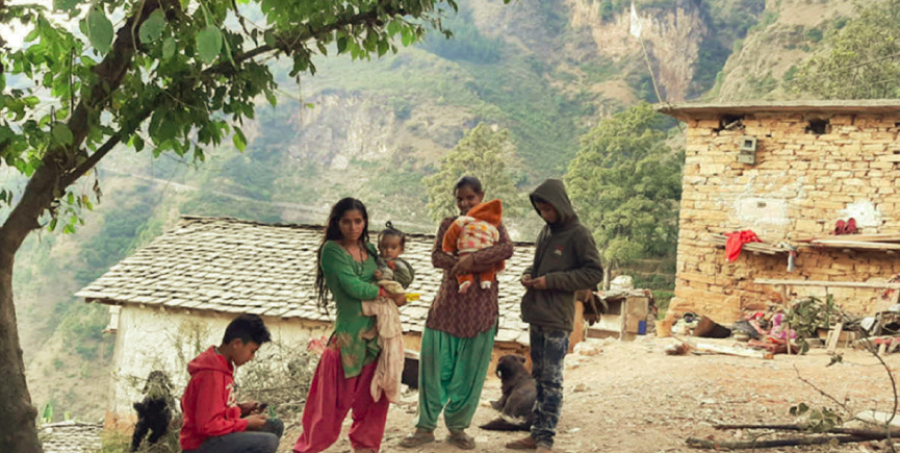
Chandan Kumar Mandal
Dalit communities across the country have been disproportionately affected by Covid-19, pandemic-induced restrictions and other containment measures, a nationwide study shows.
The Samata Foundation study found that nearly 82 percent of Dalits who participated in its survey reported financial distress due to the Covid-19 pandemic and restrictions imposed to contain its spread.
“Such financial distress was higher among Dalits from Lumbini Province and Sudurpaschim Province,” said Gopal Nepali, senior researcher at the foundation. “The Covid-19 pandemic resulted in an economic crisis for the Dalit communities.”
The study titled Impact of Covid-19 on the Dalit Community of Nepal was conducted among 1,5oo respondents from 753 municipalities in all seven provinces of the country. Likewise, 35 Dalit leaders from local, provincial and the central level and 11 civil society members were also interviewed to assess the effects of the pandemic on Dalit communities across the country. Due to travel restrictions, interviews were conducted over the phone, said Nepali, the lead researcher.
Around 45 percent of the respondents said they had lost their jobs during the pandemic. The job loss rate (53 percent) was the highest among Dalits of Province 2 and Province Karnali during the Covid-19 induced lockdown, according to the research findings.
“Dalits lost their jobs during the lockdown because most of them are daily wage workers. But even after it was lifted, they could not travel to work,” said Sadhna Jha, deputy mayor of Rajbiraj Municipality in Saptari district of Province 2. “Also because of lower literacy levels among Dalits, they couldn’t even understand the risks of Covid-19.”
As they suffered an economic crisis, they also struggled to make their ends meet, the report of the study says. Only 1 percent of the Dalits interviewed said that they had enough to eat for the next six months. While another 40 percent said they could manage food for at least one week, 8 percent didn’t have a stock of food at all.
“It is widely experienced that marginalised communities like Dalits are affected more during times of crisis. The research findings prove that again,” said Pradip Pariyar, executive chairman of Samata Foundation. “We have had our own experience of the 2015 earthquake which struck everyone equally in the beginning. But when the government response and relief started, the disparity was apparent. Those in power had relatively easier access to government support.”
According to Pariyar, the marginalised groups are in a sorry state again even during the global crisis like Covid-19.
“Malar Sada and Surya Bahadur Tamang, who died after not getting food, were from the marginalised communities. This shows how these groups are disproportionately affected,” said Pariyar.
While they scrambled for food, Dalits said that the government’s relief materials were not adequate to help them survive. Forty-six percent of the Dalits pointed out the distributed relief materials were not enough. To make it worse for members of the Dalit community, who are subjected to various forms of discrimination mainly because of their caste, they suffered caste-based discrimination even during the distribution of relief distribution.
At the national level, 18 percent Dalits faced caste-based discrimination during relief distribution—ill-treatment was prevalent in all seven provinces. According to the findings, 48 percent of Dalits, who participated in the research Province 2, experienced caste-based discrimination during the pandemic, followed by 26 percent Dalits in Sudurpaschim Province.
“Every pandemic or crisis-like situation hurts the marginalised and the suppressed more. The research findings have shown the same,” said Jasmaya Gajmer, Social Development State Minister of Province 1. “It shows we have to reconsider our interventions and how we have been implementing our activities while dealing with the pandemic. To help Dalits in distress, there should be adequate employment programmes.”
The study found that at least 13 percent of Dalits still had no information about the infection risks of Covid-19, showing the lack of access to life-saving information during crises like the ongoing pandemic among marginalised communities.
Responding to the research findings, Janak Rai, assistant professor with the Central Department of Anthropology under Tribhuvan University, said the research is important for all three tiers of the government, Dalit activists, leaders and academicians.
“The research has revealed evidence of discrimination in relief distribution. For instance, more Dalits have lost their jobs in Province 2, opening up avenues for finding out why it has happened,” said Rai. “Likewise, a relatively lower number of Dalits from Bagmati Province have lost jobs but they have also faced discrimination during relief distribution drive, which is more than Lumbini Province. We need to delve into these issues as well.”




 7.12°C Kathmandu
7.12°C Kathmandu

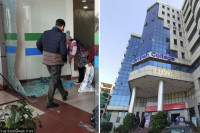
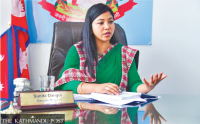
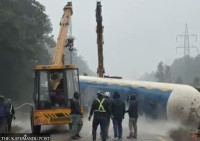




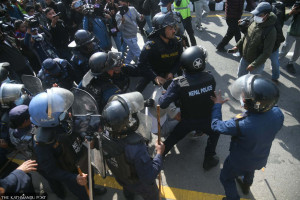
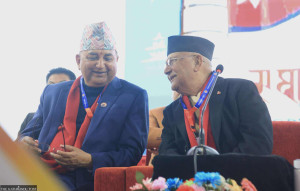



%20(1).jpg&w=300&height=200)

